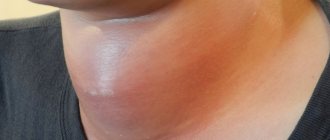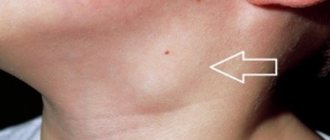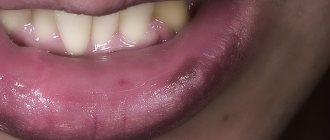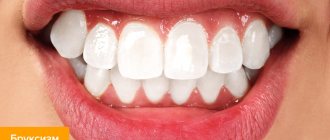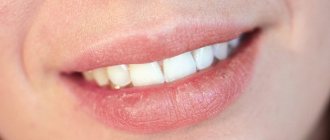Why do lips dry out?
Dry lips occur due to several factors, such as:
- dry or windy weather;
- frequent stress;
- habit of licking lips;
- taking medications that affect the functioning of the salivary glands and muscles around the mouth;
- increased body temperature during illness;
- intoxication processes;
- allergic reaction to cosmetics;
- diabetes;
- kidney diseases;
- bad habits.
Lips often become dry in people who are on diets or follow a vegetarian diet. In such cases, the condition of the lips worsens due to a deficiency of fat-soluble vitamins, which are found in foods of animal origin.
Treatment
There is no perfect medicine for treating oral mucosal sloughs. It is important to treat the underlying cause as soon as you are diagnosed. The dentist will analyze the symptoms and compare them with one of the reasons mentioned above. He will then be able to prescribe medication to treat the detachment of the mucous membrane in your mouth.
The dentist may prescribe a local anesthetic or tablets to help relieve the pain. These medications include aspirin, acetaminophen, and ibuprofen.
Usually, mucosal detachment goes away within a few days, but if it lasts longer for you, then you need to see a dentist as soon as possible. Treating the underlying cause is the key to solving the problem.
What should beautiful and healthy lips look like?
Beautiful and healthy lips are characterized by the following signs:
- evenness and smoothness of the skin;
- symmetry of the corners of the mouth;
- the presence of a pink or red tint to the lips;
- absence of peeling, cracks and purse-string wrinkles;
- convex volume of the labial border;
- absence of jams, pigmentation and pathological manifestations.
It is also important to pay attention to the presence of a hollow above the upper lip and a cupid's arch, which should be clearly defined.
Top 10 tips on how to care for your lips
To keep your lips smooth and hydrated, follow these tips:
- Regularly exfoliate the skin of your lips with special scrubs or a damp, thick towel.
- Moisturize and nourish your lips with herbal balms; in the summer, you should additionally use products with SPF filters.
- Maintain a drinking regime of drinking 2 liters of clean water per day.
- Include in your diet foods high in omega-3 fatty acids (nuts, vegetable oils, vegetables and herbs, fatty fish).
- Stop smoking, as tobacco smoke dries out the thinnest skin of the lips and leads to the formation of purse-string wrinkles.
- Wash off makeup not with soap, but with two-phase makeup removers. In addition, while washing your face, it is good to do simple exercises to strengthen the orbicularis oris muscle. It is necessary to tightly compress and unclench your lips, and also pronounce the letters A, O, U, Y.
- Take complexes containing vitamins A, C, E and group B.
- Apply only high-quality cosmetics to your lips that do not contain camphor, phenol, aniline dyes and heavy metal salts.
- It is recommended to add lip masks to winter care, or replace them by applying a restorative cream at night.
- It is important to remember that cosmetic procedures play a huge role in maintaining external beauty. Therefore, do not forget about professional salon care for thin and delicate lip skin.
Causes
There are many different reasons that can lead to the mucous membrane in the mouth beginning to peel off. Although most are considered harmless, the discomfort and pain caused as a result of this condition can be unbearable. Most often, the lining of the mouth will heal on its own, but if it doesn't, you'll need to see a dentist for effective treatment.
Reaction to toothpaste
Hypersensitivity reactions are abnormal reactions of the immune system that occur in response to exposure to harmless substances.
For example, components in toothpaste. Sometimes the mucous membrane begins to peel off after brushing your teeth. One reason for this is a mild allergic or irritant reaction to toothpaste. Most mouth rinses contain a small percentage of alcohol. It has been found that continuous use of such rinses can lead to infections such as ulcers and even oral cancer.
Listerine is the most popular alcohol mouthwash. Therefore, it should be used only as prescribed by a doctor, as it can improve gingivitis and even help heal gum disease. You must understand that this rinse is very strong and should not be used too often. Otherwise, the alcohol in it can cause a burn to the oral mucosa and lead to its detachment. To avoid this, you can dilute Listerine with water before use. The alcohol in Listerine has been found to have the following effects:
- dries out mouth and lips
- influences test results
- leads to tissue separation in the mouth
First of all, you should change the toothpaste that presumably causes your allergy. Try another one and notice if there is improvement or if the peeling persists.
If after a week the mucous membrane continues to peel even after changing toothpaste, you need to visit the dentist as soon as possible. Or you can use fluoride toothpaste to help strengthen your mouth.
Autoimmune disorder
Such serious diseases are most often accompanied by other symptoms on the skin of the body.
It often happens that detachment of the mucous membrane in the mouth occurs as a result of an autoimmune disorder. As a result of the body attacking healthy cells, ulcers form on the mucous membrane in the mouth. Examples of such autoimmune disorders are:
- Pemphigus is an unusual, sometimes fatal disease that causes blisters in the mouth.
- Bullous pemphigoid is a less dangerous disease in which the blisters are itchy, hard and dense. The skin between the blisters is red and possibly swollen.
- Dermatitis herpetiformis is a chronic inflammatory disease caused by sensitivity or allergy to gluten.
According to the American Autoimmune Disease Association, such disorders affect up to 15% of millions of people. These are chronic conditions for which there is no cure yet. However, therapy involves attempting to control and reduce severe symptoms. The following measures will help alleviate the disease:
- Balanced diet
- Regular exercise
- Enough time to rest
- Moderate amounts of vitamin supplements
- Reducing excessive sun exposure
- Drug therapy (often hormonal)
Stevens-Johnson syndrome
With Stevens-Johnson syndrome, the skin on the body also suffers greatly.
Stevens-Johnson syndrome is a rare but serious disease that affects the skin and mucous membranes. It is usually caused by an adverse reaction to certain medications. It is also possible that the syndrome is caused by an infection.
The disease begins with flu-like symptoms, accompanied by a red rash that spreads throughout the body and forms blisters. The damaged parts will eventually die and begin to peel off. You should consult a doctor as soon as possible, as this disease requires serious treatment. Therapy is mainly aimed at identifying the underlying cause, controlling symptoms and preventing future complications.
People with Stevens-Johnson syndrome often experience symptoms such as:
- General malaise
- Severe headaches
- Joint pain
- Fever
- Cough
Some time after the first symptoms appear, a rash may appear inside the mouth, which can lead to the death of tissue in the mucous membrane and cause it to peel off. The rash usually looks like a target - darker in the center and lighter on the outside. If you brush your teeth at this stage of the disease, it can cause blisters and ulcers to develop, which, when ruptured, leave painful sores. The lining of your mouth may blister, making it painful to swallow, or you may develop a more serious problem such as dehydration.
Early treatment of this condition is recommended. Otherwise, symptoms may worsen and lead to a life-threatening infection. Your doctor will refer you to the intensive care unit or burn unit for close monitoring and treatment.
Treatment will include:
- Strong analgesics to relieve pain in moist areas of the skin and mucous membranes.
- Skin moisturizing. This can be an air filter or using a liquid.
- Replacement of fluid loss. These are liquid and tablet preparations containing nutrients that help repair damaged mucous membranes in the mouth.
- A general antibiotic if an infection is detected during a blood test.
- Mouth rinses containing an anesthetic may be prescribed to numb the mouth and make swallowing easier.
Overzealous or careless brushing of teeth
If you apply a lot of force while brushing your teeth, there is a possibility that the bristles of the toothpaste will damage the mucous membrane of the mouth and lead to its peeling.
If you stop brushing for a while or are as careful as possible, the flaking may stop, but if it doesn't, you need to see your dentist as soon as possible. You should also avoid eating acidic foods as they can aggravate the situation.
Stomatitis
Herpetic stomatitis (left) and allergic contact stomatitis, which occurs as a reaction to some substance (in this case acrylic)
Stomatitis is an inflammation of the oral mucosa. This is a painful condition that is accompanied by redness, swelling and sometimes bleeding. When swelling occurs, the expansion and contraction of the mucosa causes it to peel off. Typically inflammation is the result of:
- Poor oral hygiene
- Burns from hot foods and drinks
- A medical condition that affects the entire body.
- Allergic reaction
Most often, stomatitis occurs in children. If you notice that your child has inflammation in the mouth, you need to visit a pediatrician who will examine him, determine the real cause of the inflammation and prescribe treatment in a timely manner, which will help avoid the spread of the inflammatory process to other parts of the body.
Depending on what causes canker sores, it may or may not be contagious. Herpetic stomatitis in children is considered contagious. Infection can occur through kissing or playing in close contact with each other.
Treatment of stomatitis is based on treating the underlying cause of the infection. The fundamental factor in the treatment of stomatitis is avoidance of the causative factor. You also need to do the following:
- Maintain good oral hygiene by brushing your teeth regularly
- Avoid spicy foods (especially for children)
- You should choose your toothpaste carefully to avoid an allergic reaction.
Psoriasis on the oral mucosa
Geographical language.
Its exact cause is not known, but some studies have linked it to psoriasis. Psoriasis mainly affects the trunk and limbs, but can also develop on the lining of the mouth, including the tongue, lips, and cause peeling. The Journal of Dermatological Case Reports reports that the condition most often appears as red patches and peeling on the lips and then spreads to other areas of the body.
If you find that the mucous membrane in your mouth is peeling, contact your dentist, who will conduct a qualified diagnosis and determine the actual cause of the damage. It must be determined that the lesions are due to psoriasis and not other health problems for treatment to be effective.
According to the European Journal of General Dentistry, oral psoriasis can appear as widespread lesions on the tongue, yellow or red spots, a whitish area or translucent plaques. With this form of psoriasis, sores may appear on the roof of the mouth (the top of the mouth), the inside of the cheek, or the lips. Often the disease affects the gums. Visit your dentist to avoid spreading the infection to other parts of the body.
If you notice the following symptoms, psoriasis is most likely the cause of the flaking of the mucous membrane in your mouth:
- Red spots with white borders
- Redness of the mucous membrane in the mouth
- Detachment of mucous membrane on the gums
- Mouth ulcers
Once your doctor performs a biopsy to make a definitive diagnosis, he or she will be able to prescribe treatment, which may include topical corticosteroids or oral medications to control your body's autoimmune response.
Oral cancer
Oral cancer
Oral cancer occurs when a tumor develops in the lining of your mouth, which is the tissue that covers your mouth and digestive organs. The disease can also appear on the surface of the tongue, inside the cheeks and palate, down to the throat, gums and lips.
Oral cancer occurs when cells in the lips or mouth undergo changes in their DNA. It is this mutation that allows cancer cells to grow and divide, causing healthy cells to die, which usually causes the lining in the mouth to die and begin to peel off. It mainly starts in the flat, thin cells that line the lips and the inside of the mouth.
The cause of the mutation is unknown, but doctors cite factors that may increase the risk of developing oral cancer. These include:
- Regular use of tobacco products
- Consumption of strong alcohol
- Prolonged sun exposure
- Weakened immune system
- Sexually transmitted virus - human papillomavirus (HPV)
Visit your doctor as soon as possible to determine the best treatment options. Symptoms to watch out for:
- Mouth ulcers that do not heal within a week
- Numbness and loss of taste
- White spots on the oral mucosa
- Unexplained lumps in the mouth
- Lumps on the neck
Oral leukoplakia
Leukoplakia
Leukoplakia is a condition in which areas of keratosis (induration, keratinization) appear as firmly attached white spots on the mucous membranes of the oral cavity. Oral leukoplakia is defined as "a predominantly white, persistent lesion of the oral mucosa that cannot be characterized like any other identifiable lesion"
Oral leukoplakia is usually not dangerous, but sometimes it can be a precancerous condition. If you begin to experience severe itching, you should see a doctor as soon as possible. Although most of the growths are not cancerous, some may show early signs of cancer. The cause of this type of condition is unknown, so it is advisable to visit your dentist if you experience unusual, persistent changes in your mouth.
Oral leukoplakia varies in appearance, with changes occurring mainly on the gums, the inside of the cheeks and sometimes on the tongue. Manifestations of leukoplakia generally look like this:
- White or gray spots
- Uneven, flat texture
- Some area of the mouth may be hard
- Your mouth may develop red lesions that may show precancerous changes
People with a weak immune system (due to medications and diseases, mainly HIV/AIDS) may experience another type of this condition called hairy leukoplakia. This condition causes fuzzy white patches that resemble ridges on the tongue, which can easily be mistaken for an oral rash. This may cause the mucous membrane in the mouth to peel off.
Lip treatments in Moscow
Therefore, in situations where you need help in restoring or correcting your lips, it is better to contact Dr. Korchagina’s clinic.
We offer you only the best and most effective procedures:
- lip augmentation and correction with hyaluronic acid – a minimally invasive injection technology based on the introduction of fillers with hyaluronate; manipulation helps to correct the shape of the lips, as well as eliminate dryness, peeling and pallor of the lip border;
- Botox injections - botulinum toxin injections block muscle contractions, which allows you to keep the skin of the lips smooth without creases and wrinkles;
- lip contouring – subcutaneous injection of filler gels ensures enlargement, smoothing of the lip contour, elimination of purse-string wrinkles and folds in the corners of the mouth;
- permanent lip makeup – tattooing evens out color, makes lips voluminous and bright, eliminating congenital defects and minor imperfections.
The selection of the optimal method for lip restoration is carried out taking into account the individual characteristics and skin condition of the patient.
To make an appointment for a consultation and procedures at the Korchagina clinic, write to us on the website or call us by phone.
